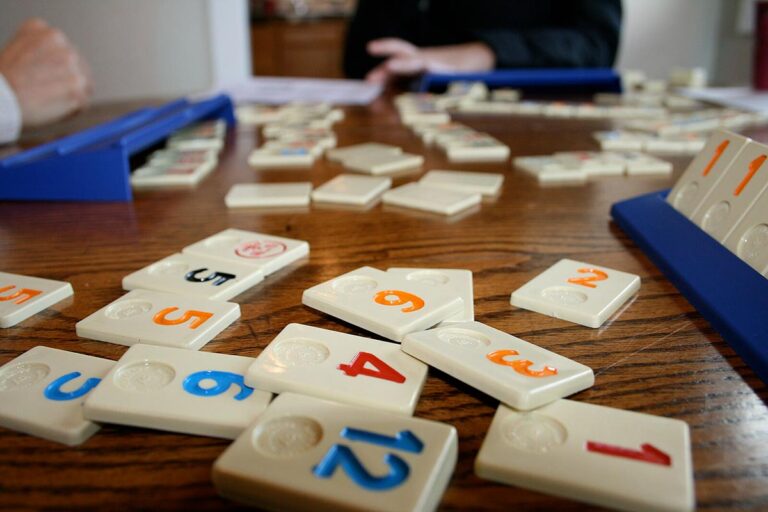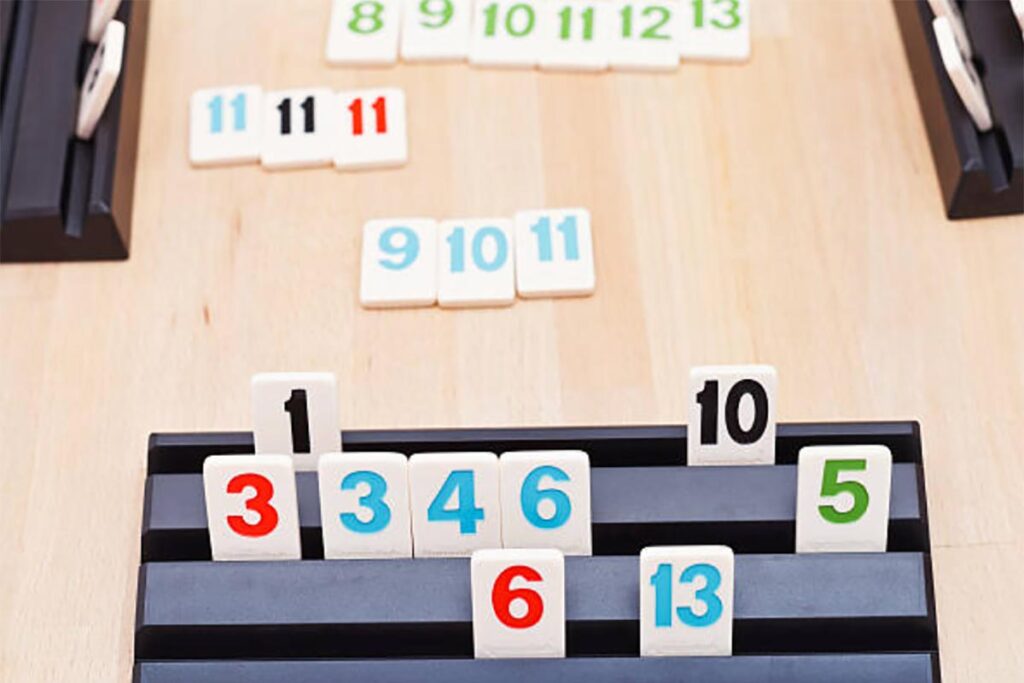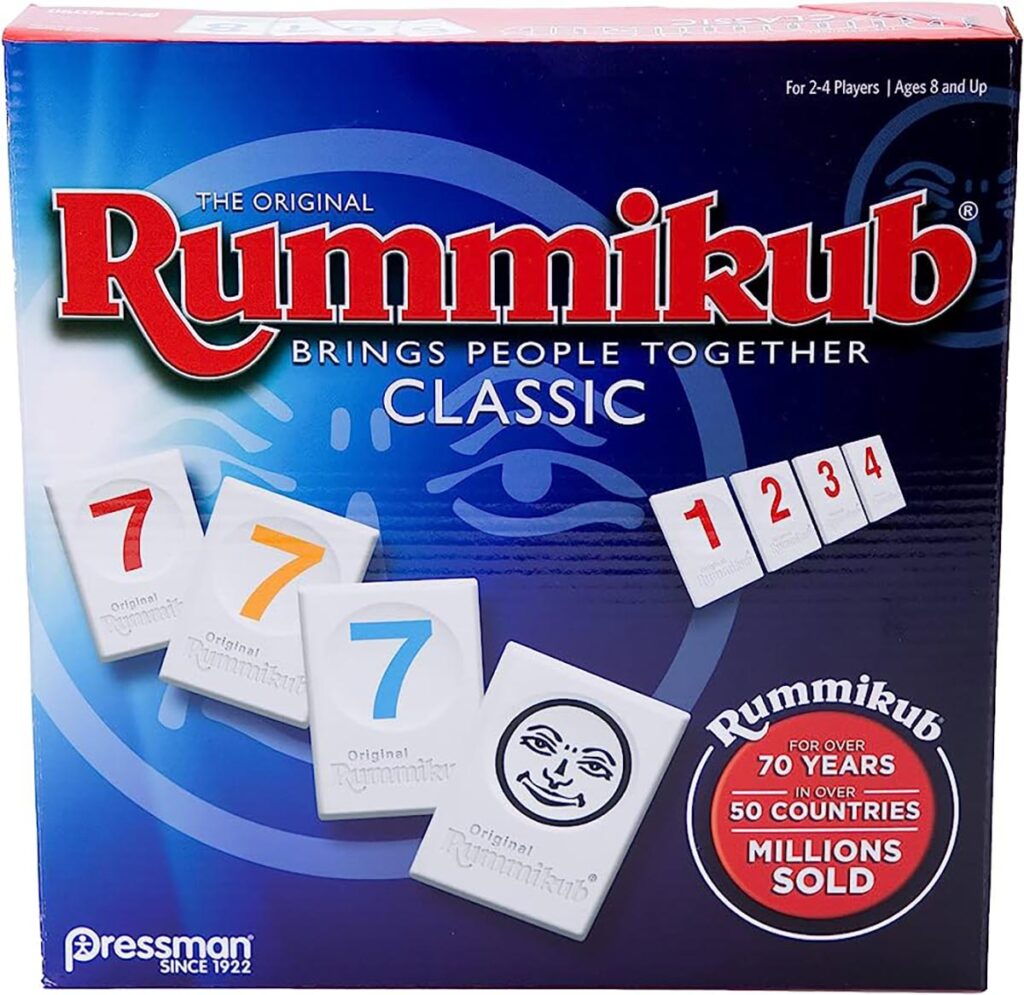
Rummikub is a household staple. Recognized and cherished around the world for its blend of strategy and luck, the iconic tile game has become synonymous with social gatherings and relaxed evenings.
Yet, Rummikub’s remarkable Jewish origins — from its inception in communist Romania to its evolution and triumphant success in Israel — are not as widely-known.
@jewishunpacked Ephraim Hertzano invented Rummikub in the 1940s to circumvent Romania’s ban on gambling #Unpackedin75 #Israelat75 #Rummikub
♬ original sound – Unpacked – Unpacked
Whether you’re an avid player or occasionally try your hand at the game, you’ll be intrigued to learn the fascinating Jewish and Israeli history behind Rummikub, starting with the creativity and ingenuity of its Jewish creator, Ephraim Hertzano.
Invention born from necessity
The story of Rummikub traces back to Romania in the 1940s.
Ephraim Hertzano, a lifelong resident of the country, worked as a salesman dealing mainly in toothbrushes and cosmetics. Outside of work, he enjoyed playing rummy with friends.
However, when communists assumed control of Romania, they banned the use of playing cards, and branded all forms of card-playing as “gambling” under their strict regime.
Faced with this obstacle, Hertzano had a unique and clever idea. Racking his brain to find a substitute for the card games he loved, he wondered: could rummy be played with tiles instead of cards?
As the saying goes, innovation often thrives in the face of adversity.
From vision to reality
Hertzano had a vision, but turning it into a tangible product proved challenging. In Romania during that era, plastic, which he needed for the game’s tiles, was both scarce and costly.

While on a business trip, he discovered a shop that repurposed plastic from discarded Perspex airplane cockpit canopies to manufacture toothbrushes. This was Hertzano’s “light bulb moment” — he realized he could use this recycled Perspex for the tiles he envisioned for his game, his children told Israel21c in 2003.
As the story goes, Hertzano’s creativity and determination paid off. He successfully created a game that emulated rummy but lacked cards.
Unsurprisingly, the innovative game quickly gained traction. The Hertzanos’ friends began asking for copies, and local retailers were interested in selling it.
Ephraim had ingeniously created the perfect loophole, a fully legal game of rummy. And under the restrictions of communist Romania, this was no small feat.
The evolution of “Rummikub”
After World War II, the Hertzano family left Romania to start a new life in Israel. The move came with its own set of challenges. They arrived with minimal possessions and received little support from immigration authorities, Ephraim’s son, Micha Hertzano, said in an interview.
Despite the hurdles, Hertzano started a new business as a supplier of natural animal hair for paint brushes. Life in Israel started modestly for the family. However, Ephraim dreamed of introducing the tile game he loved so much to his new homeland.
Hertzano devoted countless hours to rebuilding his game. He turned the backyard of his home in Bat Yam, a city near Tel Aviv, into a makeshift production site. There, he painstakingly assembled each game by hand: cutting the plastic tiles, hand-painting each piece, and constructing wooden containers for the sets.
Micha recalled, “Dad would produce a few game sets each week. He would take six sets in his bag and go store to store, trying to convince people to buy. He didn’t ask the store owners for any money at first. He said, ‘Try the game, when you get addicted, you’ll pay. If you don’t, you can return the game to me.’”
Eventually, one store owner agreed to stock Hertzano’s game on consignment, but it sat on the store shelf collecting dust for weeks.
Not one to be easily disheartened, Hertzano invited the store owner and his wife over for a friendly round of Rummikub. To Ephraim’s delight, the game evening was such a hit that the store owner not only became a fan but also introduced Rummikub to his friends. Word of the game spread, and demand for it began to grow.
“Soon the six games manufactured per week became 60, then 600, and onward into a real industry,” Micha said.
From then on, the game continued to grow in popularity. Collaborating with his children, Ephraim soon found himself selling thousands of Rummikub sets annually. The game quickly became an Israeli favorite, and many visitors to the country returned with one or more sets as gifts for friends and family.
An international phenomenon
As Rummikub’s popularity in Israel skyrocketed, so did Ephraim’s ambitions for the game.
In the 1970s, when his son Micha relocated to the U.S. for business studies, Ephraim saw an opportunity for the family business to delve into exports. He began his quest to introduce Rummikub to American audiences from a cubicle in the commercial delegation section of the Israeli Embassy, according to Israel21c.

Hertzano’s big break came when famed American comedian Don Rickles toured Israel and later shared his experiences with his late-night television audience. Among his anecdotes was the introduction of a captivating new game, ”Rummikub,” which had enthralled both him and his wife.
Rickles humorously described how the game had overtaken their lives: they found themselves skipping meals and sleep, engrossed in endless rounds of Rummikub. Their friends became curious too, and at social events, they often asked the Rickles to bring along “that Israeli game.”
Suddenly, wholesalers, high-end retailers, and gaming enthusiasts were placing orders for Rummikub by the tens of thousands. Sales rocketed past the 100,000 mark, resulting in waitlists for eager buyers.
By 1977, Rummikub reigned as the top-selling game in the United States. The game’s legacy was firmly established and the rest is history.
Mastering the tiles: Rummikub’s competitive arena
Nearly 50 years after Rummikub’s impressive debut in the U.S., the game continues to be a household name.
Now reaching fans in over 70 countries and translated into 28 languages, the game has achieved more than just casual recreation — it’s also evolved into a competitive sport.
Rummikub tournaments and championships are held internationally, attracting skilled players who vie for titles and prizes.
The World Rummikub Championship (WRC) is held once every three years, inviting top players from around the world to face off.
The first WRC was held in Jerusalem in 1991, with only 12 countries participating. Since then, competitions have been held at iconic locations: from the Eiffel Tower in Paris and Hamleys in London, to a bullfighting arena in Spain, and Berlin’s architectural marvel, the DZ Bank designed by Frank Gehry.
Rummikub’s success and legacy
The global rise of Rummikub was not without its challenges. But driven by Hertzano’s unwavering determination, deep conviction, and a touch of chutzpah, the game has bridged gaps across generations, languages, and cultures.
Today, Rummikub still runs under the stewardship of the Hertzano family with Ephraim’s children, Micha and Mariana Hertzano, at the helm.
All the games are manufactured in their new factory in Arad, a small desert town in southern Israel.
There, every game element takes form, from the molding of the tiles and the creation of the cardboard components to the final assembly, Micha explained. Each Rummikub set, no matter its final destination, begins its journey at this very spot in Israel.
Rummikub represents more than just a game. It embodies a story of human drive, creativity and resilience. Hertzano’s legacy lives on every time players rearrange those colorful tiles and strategize their next move.
So next time you piece together tiles for that perfect Rummikub sequence, remember the spirit of its creator, Ephraim Hertzano, who turned adversity into enduring success. What’s more Jewish than that?
Originally Published Aug 31, 2023 01:53PM EDT


